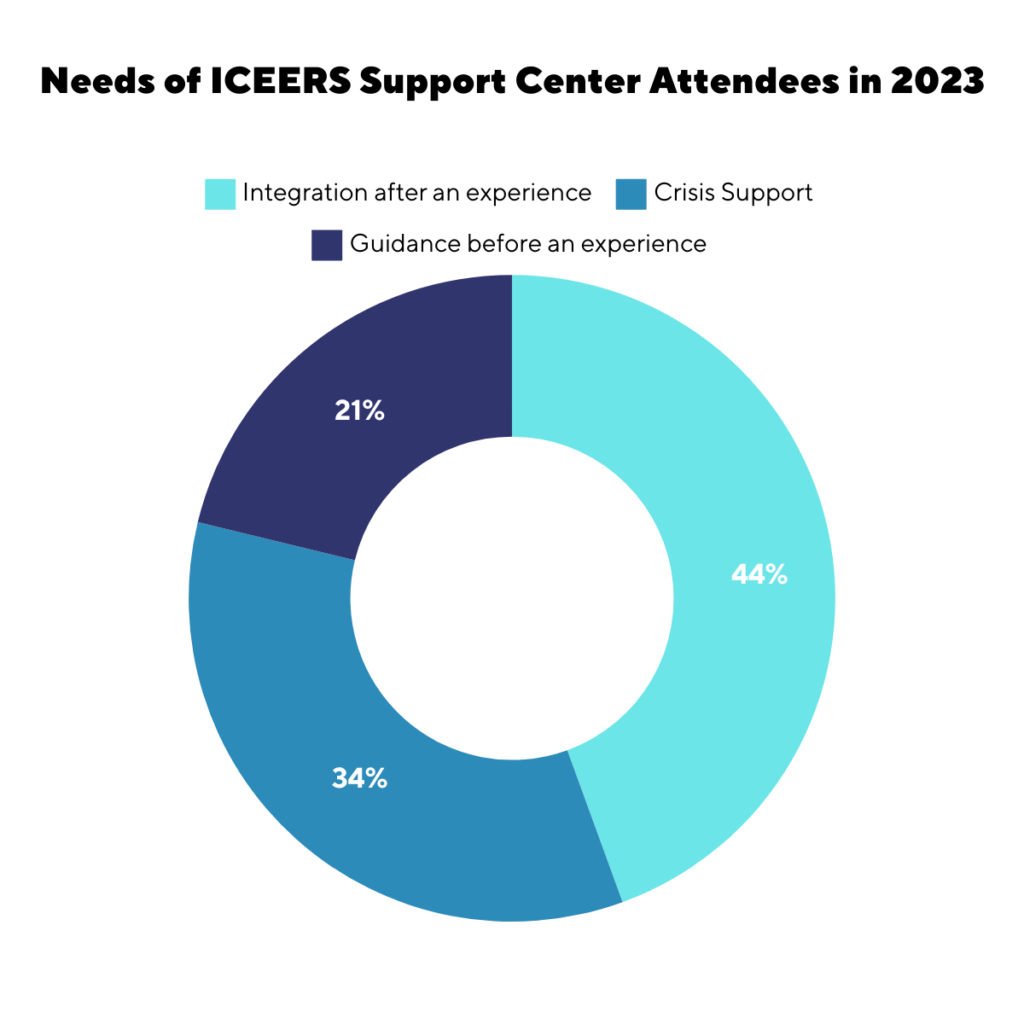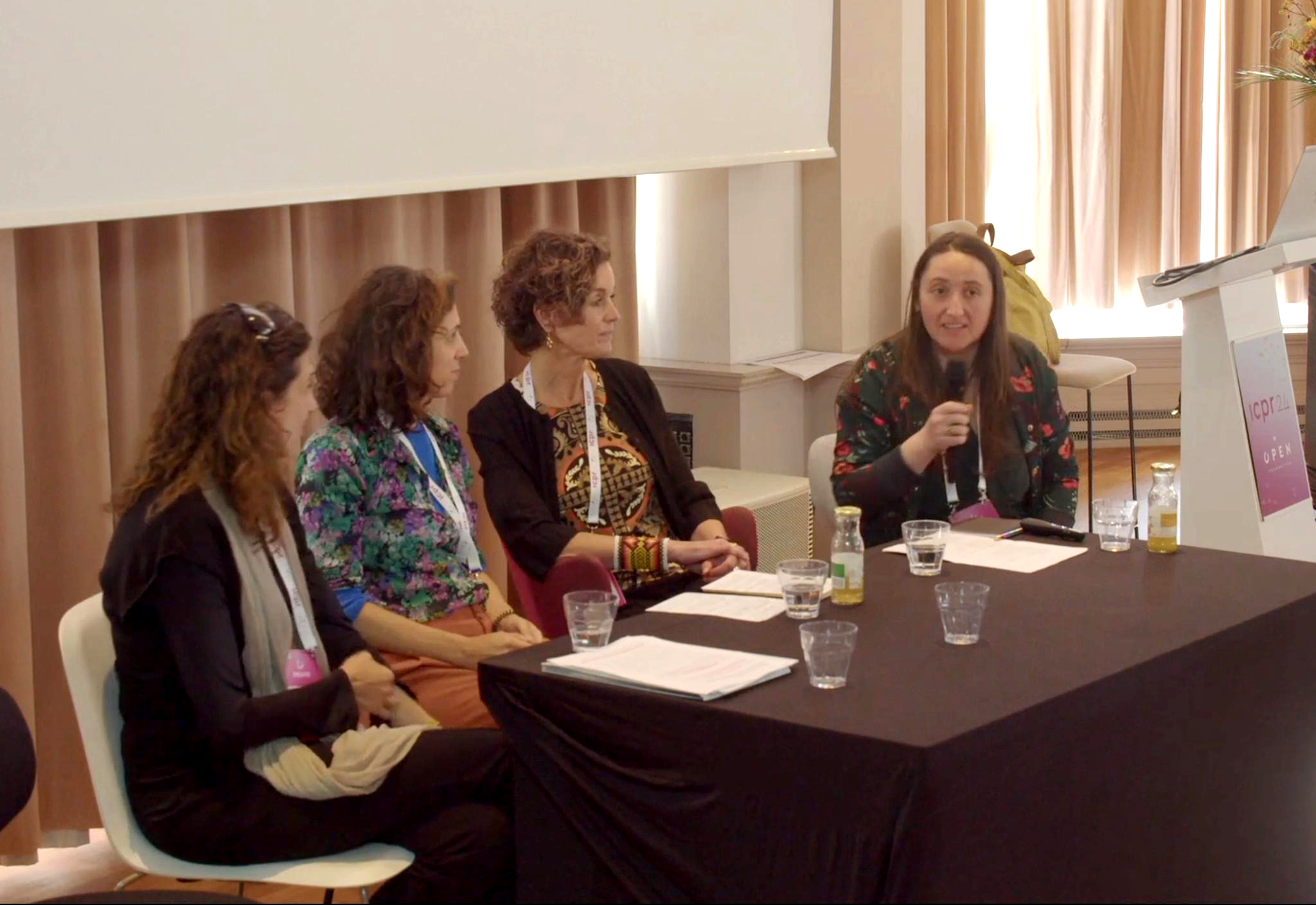ICEERS | June 25, 2024
Uniting diverse voices from various backgrounds encourages communities to find common ground and build collective knowledge. A communal approach not only strengthens advocacy efforts but also creates informed responses to specific issues. The 2024 International Conference on Psychedelic Research (ICPR) in the Netherlands gathered international experts across various subject areas. ICEERS helped coordinate a panel discussion that examined the various challenges facing the so-called “Psychedelic Renaissance” along with representatives from PsyPan, LIAAN, and MovAya. It is crucial to explore challenges and create effective frameworks to advance the field of psychedelics with care, respect, and scientific rigor. Below is an overview of the key takeaways from the discussion.
Advocacy for Clinical Trial Participants
Leonie Schneider of PsyPAN gave a detailed account of her involvement in psilocybin trials for depression and shared the profound impact they had on her healing journey. Leonie had been dealing with depression since 1998. She described how psychedelic therapy provided important insights and sustainable changes in her mental health which she couldn’t attain with traditional antidepressants. She discussed the psychological impact of clinical trials on participants, particularly the disappointment associated with placebo groups and the abrupt discontinuation of support after the study concludes.
Leonie supports the redesign of clinical trial methodologies to enhance access to psychedelic treatments, ensuring participants can continue to benefit after the study finishes. PsyPAN advocates for participants’ rights to access effective treatment as part of compassionate care practices, similar to approaches in physical health trials. Along with her co-founder, Ian Roullier, they launched the white paper “In the Participants Words: Patient Insights from Psychedelic Clinical Trials.” The document highlights six actions trial sponsors can take to make a tangible difference for participants. She stressed the importance of developing a more compassionate framework that can fully align with the therapeutic potential of psychedelics.
ICEERS Support Center Key Findings
Cristina Sánchez of ICEERS highlighted the comprehensive services offered by the organization’s Support Center, which is dedicated to offering integration, harm reduction, and crisis support. ICEERS has developed a responsive model that integrates traditional healing paradigms with modern psychological support since the service began in 2013. The Support Center provides ongoing education on safety with psychedelics and accompanies people in the process of meaningfully integrating these experiences into their lives. Cristina elaborated on the complex cases the center handles, focusing on the integration of experiences from ceremonial settings involving ancestral medicines like ayahuasca and psilocybin. She stressed the importance of a supportive framework that respects cultural diversity and individual experiences while promoting safety and ethical standards.
Cristina highlighted some of the most common challenges the Support Center faces. One is the complexity of the psychedelic experience itself and how different variables can produce a multitude of situations. There is also the need to address issues of malpractice from healers, caregivers, and facilitators. She mentioned the fundamental importance of integration and noted that after one or two integration sessions, people can alleviate their discomfort or reduce their anxiety. Support Center clients value the opportunity to talk with a professional that doesn’t stigmatize their situation and that helps them to contextualize and legitimatize what they are going through.
Cristina mentioned that a key part of the healing potential of ancestral medicines is related to having them in a community context. She emphasized the importance of building alliances to confront current challenges, particularly in cases of abuse of power —be it physical, patrimonial, or sexual— since such situations occur across all settings and cultures. Over the last year, the Support Center started working with other organizations that are addressing this issue. This ICPR panel was the first public event organized by this newly established network to give visibility to the variety of challenges the psychedelic community faces.
 Movaya’s Advocacy Against Abuses of Power in Brazil
Movaya’s Advocacy Against Abuses of Power in Brazil
Movaya is a grassroots nonprofit organization in Brazil that works to address abuses of power within the ayahuasca community. Movaya advocates for policies that protect and respect Indigenous practices and modern therapeutic applications. They were unable to attend because a trip from Brazil to Europe for the conference was beyond their financial means. However, given their specific experience in one of the countries of origin of these plants and practices, their knowledge and perspective were invaluable at this conference.
Movaya discussed how their collective works to ensure safety and respect in ayahuasca ceremonies through community education, legal advocacy, and support networks. The discussion also covered how Movaya is working to change public perceptions and legal approaches about ayahuasca’s cultural, spiritual, and therapeutic dimensions. They emphasized the need for a collaborative approach that includes local communities and international partners to effectively address and prevent abuses in psychedelic settings.
Building Community Safety Standards For Facilitators
Mandy van Amstel from LIAAN detailed how the organization is developing safety and ethical standards within the psychedelic facilitator community in the Netherlands. She discussed the unified efforts to create community-supported guidelines that facilitators are encouraged to follow. This framework then helps maintain integrity and safety in psychedelic therapy sessions.
Mandy mentioned the importance of peer support networks to encourage a continuous learning environment. This also involves addressing the ethical dilemmas facilitators face since their accountability is crucial for mitigating potential risks and enhancing therapeutic outcomes. Talking about these issues openly helps create accountability and encourages community-focused solutions.
Strategic Development and Future Considerations
The ICPR panelists collectively identified several key areas of focus to work towards:
- Participant-centric trial designs: Innovative approaches in clinical trial design should focus on participant welfare to ensure access to therapies after the studies end. This calls for a reframing of how psychedelic trials are conducted. It also includes models that prioritize long-term participant well-being and the real-world applicability of findings.
- Need for support-based integration networks: The community can work to build stronger networks that offer support to people before, during, and after psychedelic experiences. This framework must take into account diverse cultural, spiritual, and personal contexts.
- Educational and harm reduction strategies: The panelists encouraged increased efforts to educate both the public and practitioners on the risks and benefits of psychedelics through a harm reduction perspective. These approaches are essential for all parties to best navigate the complexities of the psychedelic landscape.
- Ethical standards and regulatory frameworks: Developing clear, enforceable ethical standards and supportive regulatory frameworks are crucial to the advancement of the field. This often comes from community-based meetings that examine practitioners’ conduct and protect the rights and well-being of participants.
Takeaways from the Panel
The ICPR panel provided insights into the challenges and opportunities within the psychedelic landscape. Panelists explored key concepts to navigate the ancestral medicine landscape with scientific scrutiny, cultural reverence, and an ethically sound framework. Incorporating diverse perspectives is crucial for developing strategies that respect traditional plant practices while also addressing the contemporary needs of societies in the Global North. This enables changemakers to collectively advocate for a future where ancestral medicines are not only respected but also integrated into international healthcare and spiritual well-being. The ICPR panel emphasizes the importance of continuous collaboration to navigate the complexities associated with the globalization of psychedelics.
Categories:
EVENTS
, NEWS
Tags:
conference
, Netherlands
, support
, ICPR

